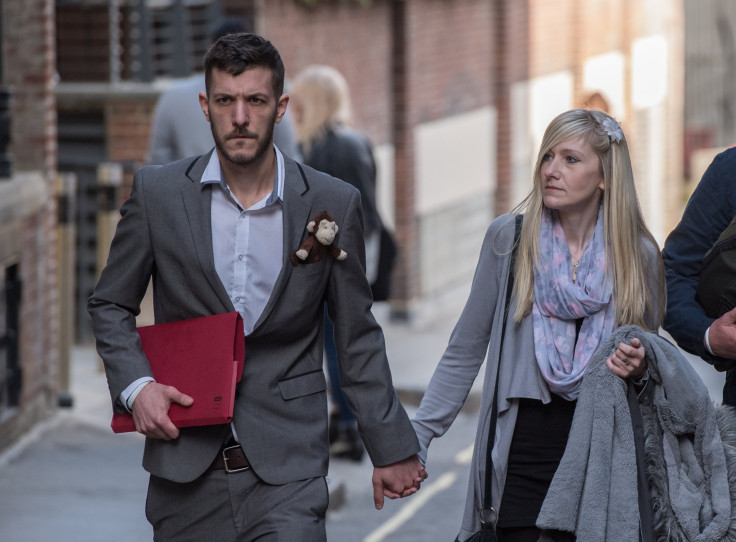Charlie Gard's Mother Responds After Trump Offers Help To Terminally Ill 11-Month Old Set To Die

The mother of terminally ill British infant Charlie Gard responded Monday after President Donald Trump offered help to the toddler. Charlie's parents — currently in London — are struggling to get their 11-month-old son to the U.S. for an experimental treatment for the rare genetic disorder — mitochondrial DNA depletion syndrome. But a European court ruled June 27 that doctors should be allowed to stop the life support treatment for the baby.
"If he's still fighting, we're still fighting!!!" the baby's mother, Connie Yates, wrote an emotional post on her Facebook account. She shared Trump's tweet that read: "If we can help little #CharlieGard, as per our friends in the U.K. and the Pope, we would be delighted to do so."
Charlie's parents are hopeful Prime Minister Theresa May will intervene in the court's decision. "Chris and Connie are overwhelmed with emotion that President Trump and the Pope have spoken publicly of their support," a spokesman for Charlie's parents said, according to the Daily Mail. "Their kind words have given them so much comfort. They remain at Charlie's bedside and his condition remains stable."
Read: Who Is Charlie Gard?
Charlie was born Aug. 4, 2016 with a rare condition — mitochondrial DNA depletion syndrome — that causes muscle and organ dysfunction and cerebral disorders. The condition caused a brain damage in the baby soon after the birth, and he was put on life support at Great Ormond Street Hospital in London. The hospital refused the parents' request to release the baby for further treatment in the U.S. saying it might not be the best course of action.
After the hospital declined to release Charlie, Yates and her husband Chris Gard took the case to the European Court of Human Rights that ruled June 27 the boy could not be taken to the U.S.
“The domestic courts concluded that it would be lawful for the hospital to withdraw life-sustaining treatment,” the court said in a press release announcing the decision. “Because it was likely that Charlie would suffer significant harm if his present suffering was prolonged without any realistic prospect of improvement and the experimental therapy would be of no effective benefit.”
The court also said Charlie was being “exposed to continued pain, suffering and distress and that undergoing experimental treatment with no prospects of success would offer no benefit and continue to cause him significant harm.”
Meanwhile, hours after Trump tweeted about Charlie, an unnamed U.S. hospital offered to treat the baby for free if his parents are able to bring him to the country, the Sun reported citing sources.
Charlie's parents are struggling to save their child's life, and in order to fulfill this endeavor, they have raised nearly $2 million through donations. As the case garnered attention in the Europe and the U.S., Pope Francis released a statement Sunday saying Charlie’s parents should be allowed to try whatever possible to help treat their son.
Read: Charlie Gard’s Parents Respond To Ruling Taking 10-Month-Old Off Life Support
“The Holy Father follows with affection and commotion the situation of Charlie Gard and expresses his own closeness to his parents. He prays for them, wishing that their desire to accompany and care for their own child to the end will be respected,” Greg Burke, the pope’s spokesman, said in a statement.
Archbishop Vincenzo Paglia, president of the Vatican's Pontifical Academy for Life, released a statement agreeing with the court's ruling, expressing sympathy for Gard’s parents. However, he was strongly criticized. “We must do what advances the health of the patient, but we must also accept the limits of medicine and, as stated in paragraph 65 of the Encyclical Evangelium Vitae, avoid aggressive medical procedures that are disproportionate to any expected results or excessively burdensome to the patient or the family,” Paglia said in a statement June 30.
© Copyright IBTimes 2024. All rights reserved.











